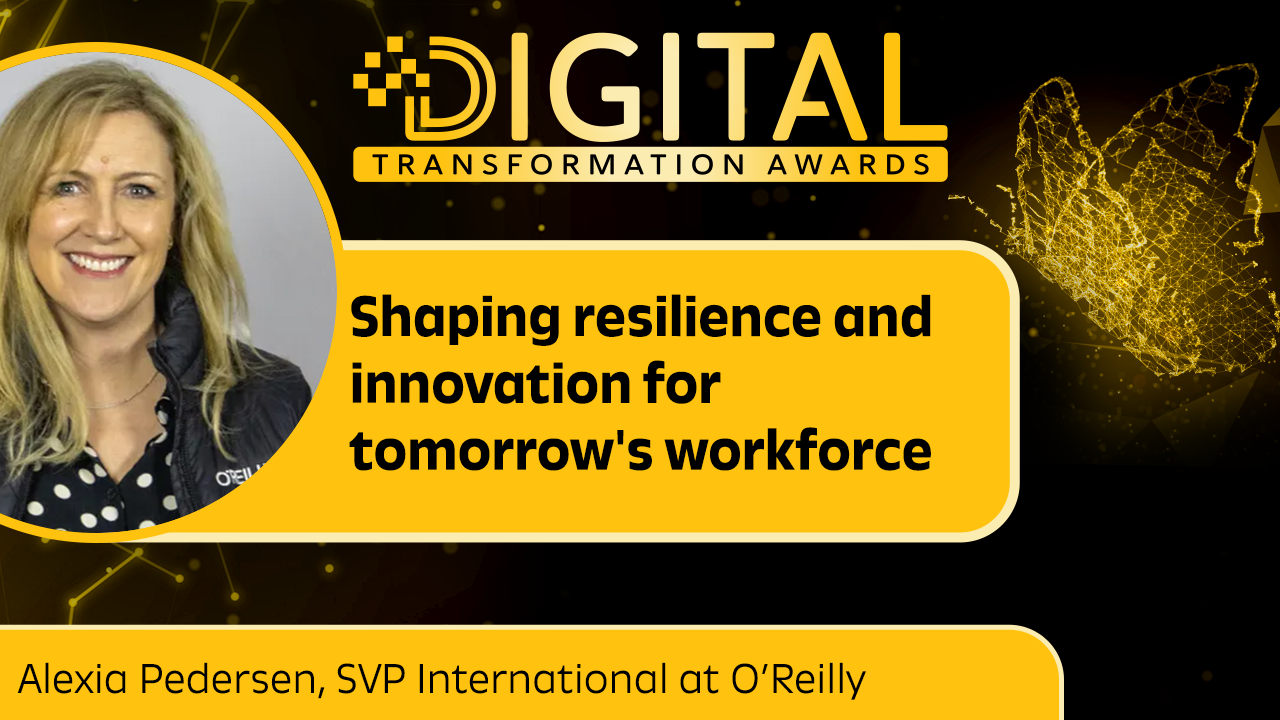By Alexia Pedersen, SVP International at O’Reilly
The current technological landscape is evolving rapidly with AI, automation, and digital transformation reshaping every industry. However, the successful integration of digital technologies requires more than just deploying cutting-edge tools. It requires support and investment in a culture of continuous learning to build a highly skilled workforce across every level and department that will drive ongoing innovation and growth.
At the same time, workers must continuously update their skills to stay relevant and competitive. Employees can embrace continuous learning to future proof their role, proactively identifying training opportunities that align with their unique learning style and objectives.
This year, continuous learning is no longer optional; it’s a strategic imperative. Particularly when you consider that employees are seeking digital upskilling opportunities as a result of market stagnation and economic downturn. In fact, our research shows that non-technical staff across every level and department have sought learning opportunities in AI and machine learning (62%), cybersecurity (53%), data analysis (49%), and programming (31%). But what skills will be most impactful for UK business productivity and economic growth?
The skills needed to succeed
- AI foundational skills across all roles and departments – This year marks a pivotal transition in technology, with AI evolving from generative capabilities to a transformative force reshaping business operations. As foundational skills gain prominence and organisations increasingly adopt new AI technologies, professionals must prioritise upskilling to effectively integrate these tools into their operations. The future is not about fearing AI’s impact on jobs but in harnessing its potential to enhance productivity and drive innovation across industries.
- Quantum mechanics, algorithms, and programming principles – The UK government’s £2.5 billion commitment to the National Quantum Technologies Programme has reinforced its ambition to become a global leader in quantum innovation by 2033. Realising these ambitions, however, requires organisations, particularly those in cybersecurity and financial services, to foster the skills necessary to pioneer advancements and attract world-class talent. Whether through internal academies or external partnerships, training should focus on quantum mechanics, algorithms, and programming principles to ensure professionals are prepared to integrate quantum advancements into existing systems. As part of a continuous learning strategy, training materials should be accessible, practical, and aligned with real-world applications. Building these capabilities now will ensure British organisations have a competitive advantage in the quantum era.
- Soft skills development for technical staff– No digital organisation can thrive without technical professionals on the payroll. However, career plateaus are inevitable in even the most high-demand field. Now, companies not only need technical staff; they need technical staff with soft skills.
These subjects are not taught in school, and unfortunately the career advancement of many excellent technical employees can be blocked by their inability to effectively communicate their needs, assert themselves, and negotiate confidently. Therefore, technical staff should prioritise soft skills development so that you can better represent the holistic interests of your team, obtain better working conditions, negotiate raises, and increase your variety of employment options by elevating your interviewing skills.
Empowering continuous development
One of the most effective ways to implement continuous learning is through “in the flow of work” learning. Unlike traditional training sessions, which require employees to set aside dedicated time for education, this approach enables workers to access relevant learning materials in real time. For best results, companies can offer ‘in the flow of work’ learning opportunities via an L&D partner, enabling staff across all levels and departments to access learning materials tailored to their unique learning style and objectives.
This is important when you consider that different roles within an organisation require unique levels of expertise. Developers, for example, may need training on secure coding and dependency scanning, while non-technical teams might focus on phishing awareness and data protection practices. Diverse learning modalities not only improve knowledge retention but also make training more inclusive, ensuring that all employees – regardless of their technical expertise – can contribute to a tech-first culture.
Above all, the success of a continuous learning strategy depends on employees taking an active role in their own professional development. Organisations should provide employees with access to learning resources and encourage them to seek out training opportunities that align with their roles and career aspirations.
By positioning education as a valuable career asset rather than a compliance requirement, organisations can motivate employees to engage more deeply with their learning. In turn, this approach to workplace learning will increase employee engagement and productivity while fostering innovation and growth that improves the bottom line.
For media enquiries, please get in touch with vaishnavi.nashte@testassociates.co.uk


